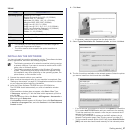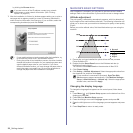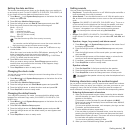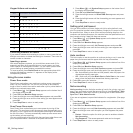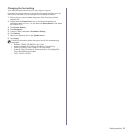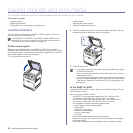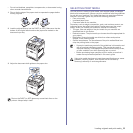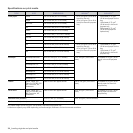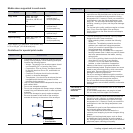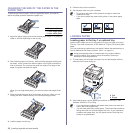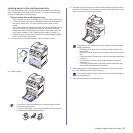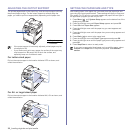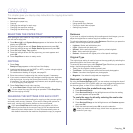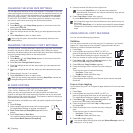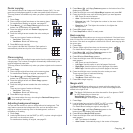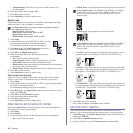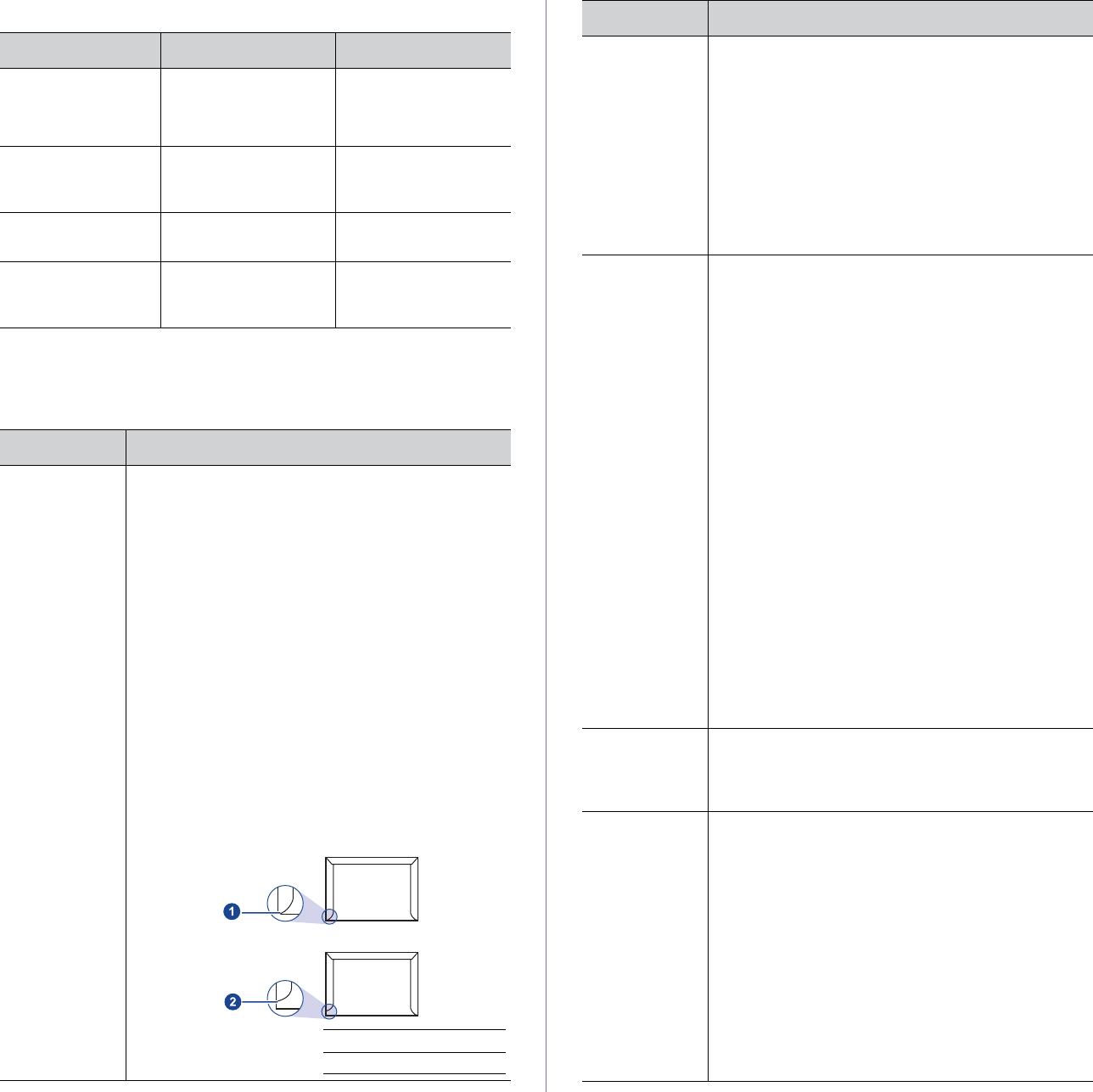
Loading originals and print media_35
Media sizes supported in each mode
Guidelines for special print media
MODE SIZE SOURCE
Copy mode Letter, A4, Legal,
Oficio, US Folio,
Executive, JIS B5, A5,
A6
• tray 1
• optional tray 2
• multi-purpose tray
Print mode All sizes supported by
the machine
• tray 1
• optional tray 2
• multi-purpose tray
Fax mode
a
a.CLX-6200FX, CLX-6210FX, CLX-6240FX only
Letter, A4, Legal • tray 1
• optional tray 2
Duplex printing
b
b.75 to 105 g/m
2
(20~28 lb bond) only
Letter, A4, Legal, US
Folio, Oficio
• tray 1
• optional tray 2
• multi-purpose tray
MEDIA TYPE GUIDELINES
Envelopes • Successful printing on envelopes depends upon the
quality of the envelopes. When selecting envelopes,
consider the following factors:
- Weight: The weight of the envelope paper should
not exceed 90 g/m
2
or jamming may occur.
- Construction: Prior to printing, envelopes should
lie flat with less than 6 mm curl, and should not
contain air.
- Condition: Envelopes should not be wrinkled,
nicked, or otherwise damaged.
- Temperature: You should use envelopes that are
compatible with the heat and pressure of the
machine during operation.
• Use only well-constructed envelopes with sharp and
well creased folds.
• Do not use stamped envelopes.
• Do not use envelopes with clasps, snaps, windows,
coated lining, self-adhesive seals, or other synthetic
materials.
• Do not use damaged or poorly made envelopes.
• Be sure the seam at both ends of the envelope
extends all the way to the corner of the envelope.
1 Acceptable
2 Unacceptable
• Envelopes with a peel-off adhesive strip or with
more than one flap that folds over to seal must use
adhesives compatible with the machine’s fusing
temperature for 0.1 second. Check your machine’s
specification to view the fusing temperature, see
page 100. The extra flaps and strips might cause
wrinkling, creasing, or jams, and may even damage
the fuser.
• For the best print quality, position margins no closer
than 15 mm from the edges of the envelope.
• Avoid printing over the area where the envelope’s
seams meet.
Labels • To avoid damaging the machine, use only labels
designed for use in laser machines.
- When selecting labels, consider the following
factors:
- Adhesives: The adhesive material should be
stable at your machine’s fusing temperature.
Check your machine’s specification to view the
fusing temperature, see page 99.
- Arrangement: Only use labels with no exposed
backing between them. Labels can peel off sheets
that have spaces between the labels, causing
serious jams.
- Curl: Prior to printing, labels must lie flat with no
more than 13 mm of curl in any direction.
- Condition: Do not use labels with wrinkles,
bubbles, or other indications of separation.
• Make sure that there is no exposed adhesive
material between labels. Exposed areas can cause
labels to peel off during printing, which can cause
paper jams. Exposed adhesive can also cause
damage to machine components.
• Do not run a sheet of labels through the machine
more than once. The adhesive backing is designed
for only a single pass through the machine.
• Do not use labels that are separating from the
backing sheet or are wrinkled, bubbled, or otherwise
damaged.
Card stock or
custom-sized
materials
• Do not print on media smaller than 76 mm wide or
356 mm long.
• In the software application, set margins at least
6.4 mm away from the edges of the material.
Preprinted
paper
• Letterhead must be printed with heat-resistant ink
that will not melt, vaporize, or release hazardous
emissions when subjected to the printer’s fusing
temperature for 0.1 second. Check your machine’s
specification to view the fusing temperature, see
page 99.
• Letterhead ink must be non-flammable and should
not adversely affect printer rollers.
• Forms and letterhead should be sealed in a
moisture-proof wrapping to prevent changes during
storage.
• Before you load preprinted paper, such as forms
and letterhead, verify that the ink on the paper is
dry. During the fusing process, wet ink can come off
preprinted paper, reducing print quality.
MEDIA TYPE GUIDELINES



